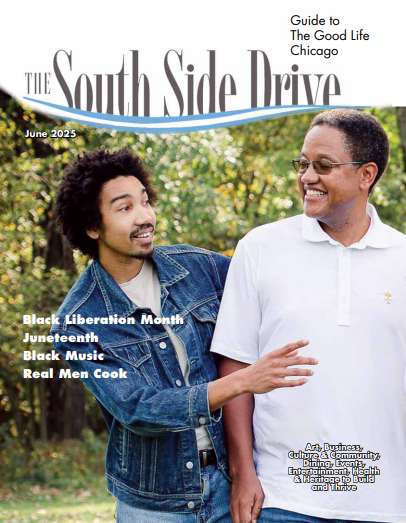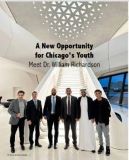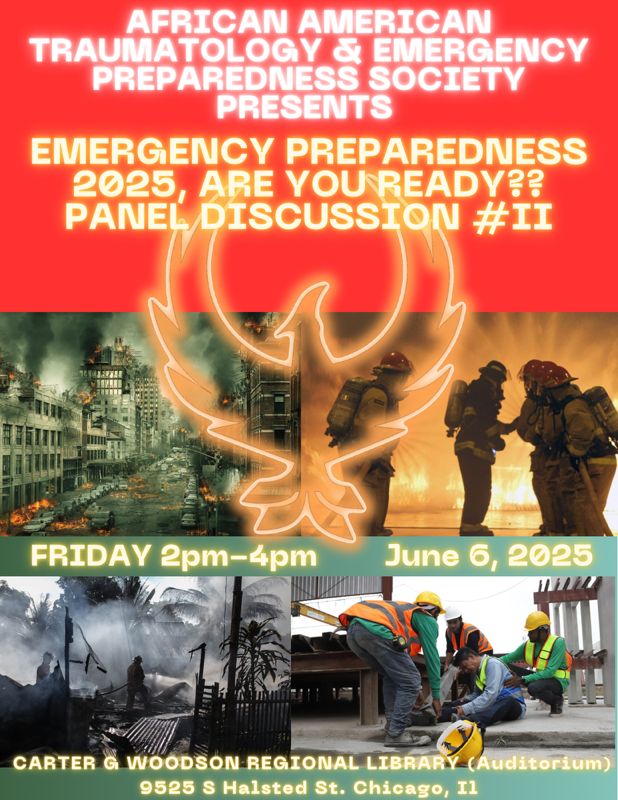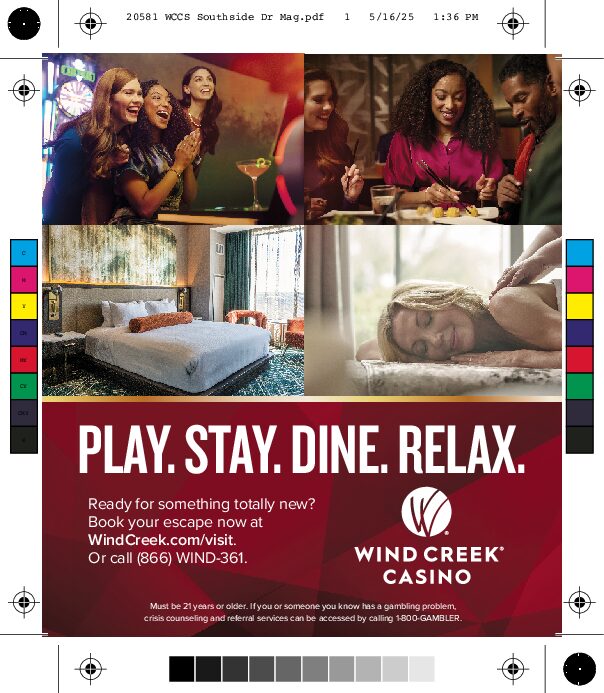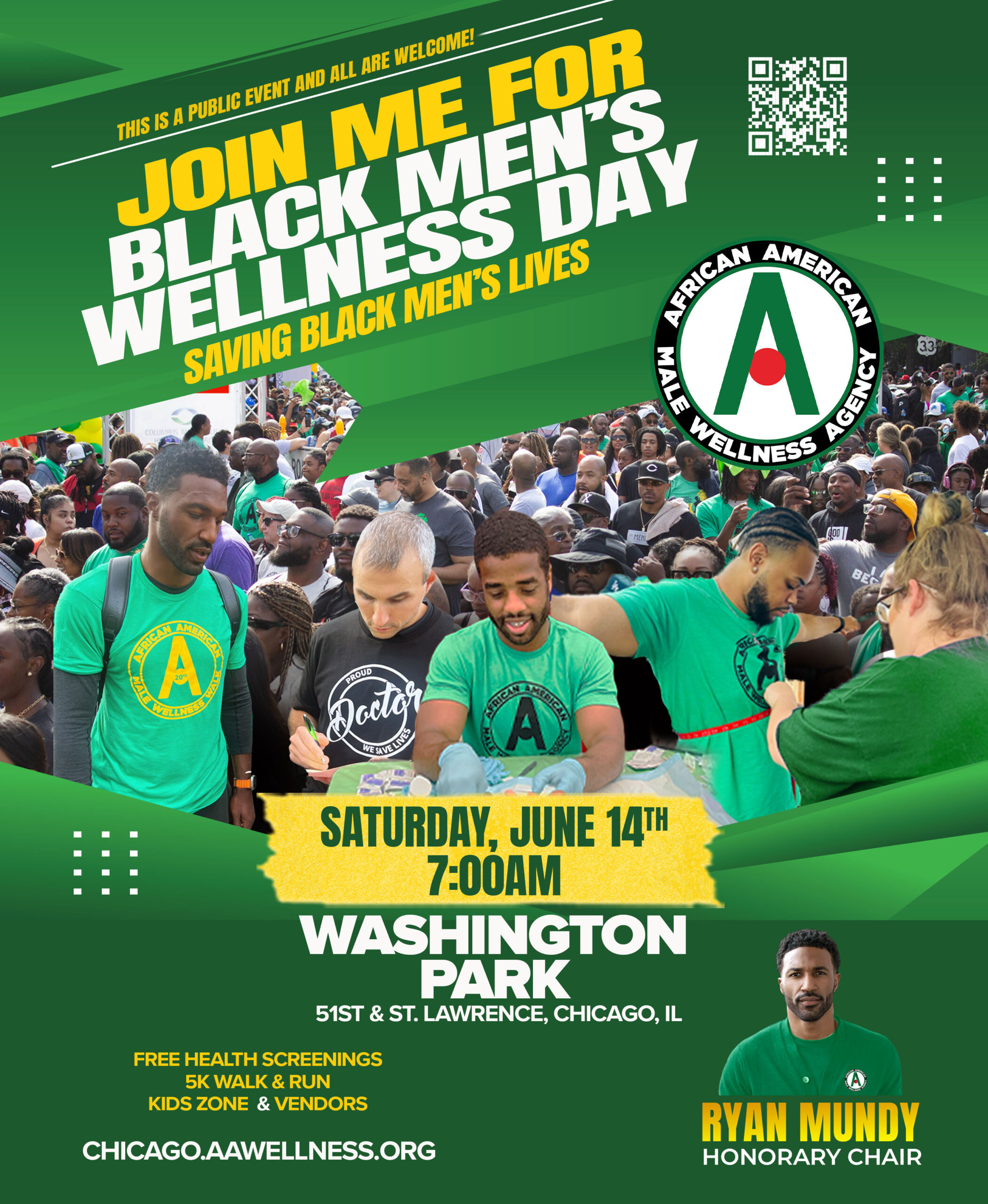Dr. William Richardson is teaming up with Jerald Gary to make some dreams come true for a lot of Chicago youth 2,500 at a time while bringing Chicago some great entertainment via the New Avalon-Regal Theater.
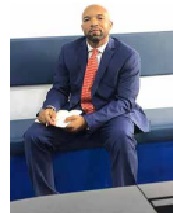
Dr. Will brings a lot to “Team Regal.” At forty-three years old, he has experienced more business and professional successes than many twice his age. Born and raised on the south side of Chicago, he is a product of the Chicago public schools (with one year of private school). His ambition and positive work ethic became evident when at the age of eleven he became the Chicago Sun Times’ youngest paper boy. He tells us that “When I was eleven years old, I took over a paper route for my mother’s friend who had an accident. It was supposed to be for two days, but this turned out to be almost three years.”
In the 90’s, no Chicago teen was safe from the street violence that occurred in the windy city, at that time nick named “Chiraq,” and Dr. Will was no exception. Growing up in a neighborhood known as “the B’s” on 80th and Muskegon, gun violence was an everyday occurrence. So, on an ordinary day, Dr. Will became a victim of a gunshot, which went through his upper chest and through the middle of his chest, causing doctors to declare his survival nothing short of a miracle. That incident caused his mother to say, “enough is enough” and moved the family to Iowa, where he completed his high school education. But the incident also caused Dr. Will to determine, at an early age, what he was going to do with the rest of his life. Being shot and hospitalized for months at any age, but especially as a teen, brought about some depression and post-traumatic stress disorder (PTSD) which led to counseling sessions. During those sessions he discovered the effectiveness of mental health counseling, and began to counsel others, landing a job as a counselor in the YMCA during his high school years. He had found his life-long profession: mental health counseling.
During his senior year, he met Juan Thomas who, knowing how much Dr. Will loved basketball, told him about an opportunity to continue to play basketball in Mesa, Arizona. He relocated to Arizona where he received his associate degree from Mesa Community College and then his bachelor’s in psychology with a minor in business from Arizona State College. He went on to receive a master’s degree in human relations from Northern Arizona University where he also received his doctorate in Educational Leadership.
His unique skills did not go unnoticed, and after completing his education he landed jobs at various mental health clinics and schools including the Arizona State Hospital, Desert Vista High School, and the Arizona Child and Family Services (ACFS). However, there came a time when he asked himself, “:If I was to have my own center and use some of the techniques I have learned from Chicago and Arizona and other places I’ve worked, what type of impact would I make?” So, he opened his own center. He says, “It was a learning experience and there were everyday struggles I had to overcome, and I learned early on to embrace the struggles, because you must be having a goal to do something if it’s a struggle, so I learned to embrace it and use as much technique and tactics as possible.” It paid off because his clinics and his techniques are known for their effectiveness and success.
What has also contributed to his success is his ability to meet and network with people and gain friendships. For instance, there’s former NFL player, Terrell Suggs. He tells us that he and Terrell started a company called Team Sizzle, where they “dibbed and dabbed” in a lot of community service events in Arizona and in Baltimore, and throughout the United States. Dr. Will is a Master Mason in Maricopa Lodge #1 of Arizona, Prince Hall Affiliation. His associations extend beyond the US, for instance he met the Al Shamlan family from Qatar and later met the Lootah family. At the time eight members of that family were attending Arizona State University. The Lootah family is one of the most prominent business families in Dubai of the United Arab Emirates (UAE); they own the first construction company and the first Islamic Bank in the UAE. After meeting them he began to travel to the UAE in 2007 and later on opened a Neurofeedback Therapy Clinic that’s located in the heart of Dubai Healthcare City.

The company is called Elite Innovative Health Services. He noted that mental health and behavioral health is a global issue. Neurofeedback is a new technique dealing with mental health without using medication. It trains your brain not to act in certain ways. The technique was welcomed in the UAE and proved highly successful. He notes that the UAE welcomes new and different approaches.
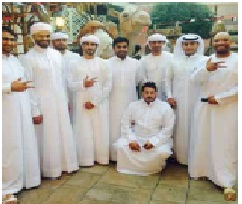
Note: Dubai Healthcare City is a healthcare free economic zone situated in the Emirate of Dubai, United Arab Emirates. DHCC was launched in 2002 by Mohammed bin Rashid Al Maktoum, vice president and Prime Minister of the UAE and Ruler of Dubai.
Dr. Will’s mother, Willa Richardson, passed away in 2016, and his grief brought him inside, where he continued to work from home, never stopping the counseling sessions and conferences.
His mother’s legacy was one of giving. She always opened up her home to people who needed a place to stay. He tells us that “Education and community service has been in my family a long time.” His grandmother, Doris Leach, sits on several boards in Grand Crossing, and was helpful in getting buildings built on 72 nd and Dobson. His uncle Bryan Leach is known as a Street Ball Legend. When he passed away the basketball courts on 72 nd and Dobson was named “the Bryan Leach Courts.” And his great-grandmother was a teacher and a principal at the same time.
That family legacy was the driving force that caused him to become one of the first responders to Arizona’s Native American population when the COVID pandemic hit. Dr. Will and his staff went to fourteen different Native American reservations and gave them boxes of necessities such as bleach, hand sanitizer, water, toilet paper, face masks and gloves.
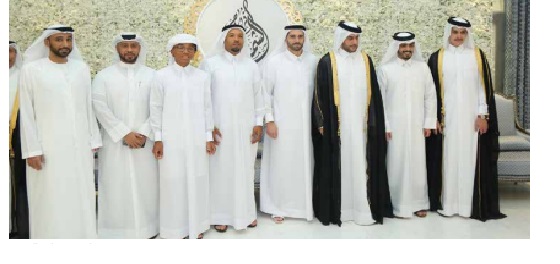
They purchased a 160-bed hotel, which came to the attention of the area hospitals. He tells us that “When the hospitals in Phoenix found out we had housing, they began dropping off patients to us, some were still in the ambulance.” They had 430 clients in one hotel and eventually got another hotel a 70 bedroom hotel. Their Native American clients were tested for COVID and then quarantined in one of the hotels. Once they tested negative, Dr. Will’s mental health team would provide counseling to help with substance abuse, depression, and PTSD, “We tweaked our program to include art therapy and music therapy,” Dr. Will says.
Because of the program’s overwhelming success, USA Today did a story on it, which came to the attention of the Oasis Group, an investment group which focuses on investing in Black communities across the United States that are often ignored by traditional financiers. Oasis was co-founded by Michal Amir, CEO and Faheem Muhammad, CIO – two Black young men who have built a multi million dollar investment empire. On their site is a message, “Here at Oasis, we not only focus on generating profits for our partners, but we aim to improve the living conditions of our communities. Michael Amir, Faheed Muhammad and Mustafa Farrakhan brought the Regal opportunity to Dr. Will’s attention.
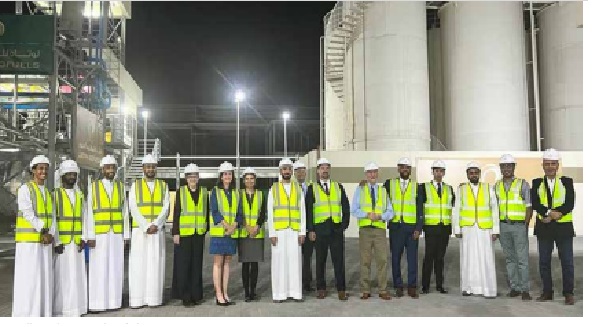
Dr. Will is no stranger to theater, having spearheaded a documentary called “The Man Behind Muhammad Ali’ which is an exciting real-life story of Abdul Rahman’s mentorship of Muhammed Ali. The production is expected to be released around the summer of 2024. “As a kid, I would ride past the Regal a million times,” he said, “And I was always fascinated. I used to love to go on field trips when we would go to the Regal, and I remembered being in awe as soon as I walked in.” His parents also told him stories about the Regal, “I’ll never forget my mom telling me about her and my dad going to the Regal. So, the Regal has always been an amazing structure to me with its Moorish Revival design and the Nubba. I’ve always been excited about the
Regal,” he says. Another reason he is excited about the Regal is because of the opportunity to bring his practice back to Chicago. In Arizona, there were 170 Native American youth that needed to get acclimated to the schools, and some of the schools allowed them to go to their schools and allowed Dr. Will’s Behavioral Health Technicians to become teacher’s assistants and sit in their classrooms and help the natives excel in school. “We went from 93 percent of our kids failing to zero percent,” he says. Dr. Will attributes the academic success to Erica Maxwell and his cousin, Chicago’s own, Dr. Karen Saffold.
He went beyond the classroom to create a respite program for them. “I brought my cousin Jeremy Saffold into the program,” he says, “Jeremy had been playing professional basketball overseas at the time and the world had shut down, and he brought several of his friends who weren’t playing and were inactive and we created a men and women’s basketball team for our program to help them get over their substance abuse, grief and PTSD.” He found that to be an effective technique in helping change some of their dysfunctions and help them get through a lot of their mental behavior.
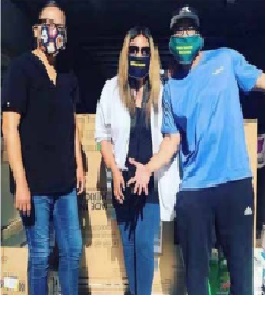
“A lot of people have graduated from that program and are doing well,” he tells us, “So now I want to put my attention on the youth in Chicago.” Dr. Will tells us, “I am from Chicago, and I’d like to bring this program and my practice to my hometown. We can train, we can have classes, there is so much we can do in my community.” In other words, besides the shows and concerts, he wants the Regal to become a place to help the city’s youth. “We can bring in motivational speakers to talk with the youth. Instead of having them at our clinic which holds about 200 people, we can have 2,500 people. I want to be a trendsetter. We can’t afford to just help one kid at a time, we’ve got to help 2,500 at a time. We want to have a brick and mortar where they can feel safe, where they can feel special, and the Regal can do that for them. There’s the original stage, still the original lights at the top. So, they can learn theater. They can learn so many things that we can do there with them, along with the concerts and shows and banquets.”
The Oasis members introduced Dr. Will to Jerald Gary, who eventually went to Arizona. “I showed him the program we put together and he was like, ‘Man, you’re a perfect fit. If you can get this done, I know you can help me with the Regal.” But what ultimately sold Dr. Will was Jerald Gary’s passion. “When I saw how passionate he was and knowing he was from our community as well, and when he came to Arizona and I saw that he was a genius, I was excited. I was honored to have this opportunity,” he said. He goes on to say, “I feel like it’s my duty to help get the Regal up and I look forward to working with Alderman Harris and Mayor Brandon Johnson. I look forward to strengthening our relationship in our community in all aspects and I want the Regal to serve as a tool to enhance the community in a positive way.” He tells us that he wants to not just restore, he wants to work with the city to restore it the right way. “And I want to do it together as a partner,” he says, “We want to make it bigger and better, not just my Regal, not just Jerald’s Regal, but the community’s Regal.”
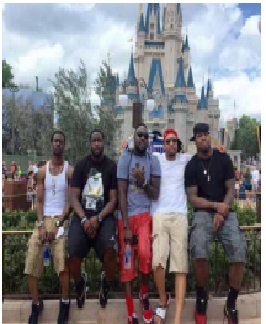
Dr. Will says they are still in the process of securing funds, writing grants, waiting on grants, waiting to hear decisions on grants and loans, and looking for good people to partner with from the city and the state, and he says “Not just from the city, maybe one of my friends from Qatar or UAE, but we will definitely make sure we get that iconic masterpiece, whatever it takes to get it up and going, because Chicago needs it, our youth need it.”
